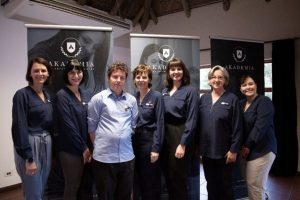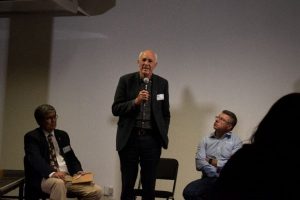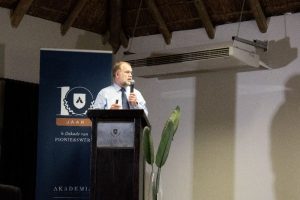Back to the future with educational leadership at Akademia symposium
On 13 April 2022, the Faculty of Education presented a symposium on educational leadership at koshuis@Leriba with ‘back to the future’ as theme. Experts in the field shared the lessons they have learned from the past with other education leaders. Marthinus Visser, the managing director of Akademia, welcomed the leaders at the symposium with the following words: ‘the appointment of top people leads to top results.’ In his speech, he shared the leadership lessons he learned at Akademia. ‘One does not take on something like Akademia alone. It’s teamwork. That’s why it’s important that the right people be appointed, even though it requires time and effort.’
In his presentation, Prof. Danie Goosen, the academic head, spoke about leadership and the role of ideas. ‘The West is in a culture crisis; to counter this, training and education stand centrally at Akademia.’ He further mentioned that institutions such as Akademia are forums where character is formed with the aim of participation in society because leadership is now absolutely necessary. ‘Leadership requires that the leader conduct a thorough analysis of the demands of our time. Leaders require insight to understand what they are confronted with. They must be able to answer the demands of our time with proper reasoning.’
Dr. Pierre Edwards, former principal of the Afrikaans Hoër Seunskool (a high school), provided a historical perspective on educational leadership in his presentation. He started recounting events starting from 1992 and referred to the political troubles. ‘The establishment of Model C schools was a shocking announcement at the time, but what seemed disastrous turned out positively,’ he said. Edwards further said that he remains extremely positive about the Afrikaans school community.
In his presentation (‘the shifting borders of school leadership—a challenging privilege!’), Dr. Louis Swanepoel, president of the South Africa Teachers Union, concurred with Edwards and demonstrated how the educational landscape has changed after 1994. He especially focussed on the revaluation of the characteristics of school leadership. ‘The big difference between officials and leaders is that leaders not only do things right but also do the right things.’ According to him, leaders must place a greater emphasis on the establishment of an effective organisational culture in schools. This will result in a great need for the retraining of educational leaders in order to equip them with the necessary skills. ‘Leaders are eager to learn. They might not have solutions at the moment, but they go to look for it. Everyone in the school system needs to be a leader in their own right and there must be a will to achieve excellence.’
Prof. Irma Eloff, former dean of the Faculty of Education at the University of Pretoria, offered an international view of lessons from educational leadership in higher education. The first lesson is that old expertise should not be lost; sometimes we need to return to old practices. Second, we need not always compete—cooperation is much more important. Third, in connection with that, an unhealthy emphasis is placed on matric results. Fourth, good education leads to increased quality of life; therefore, top students must be recruited to become teachers.
The theme by Jaco Deacon, chief executive officer of FEDSAS, was ‘and the leader asks why?’ He agreed with Swanepoel on the importance of leaders doing the right things. According to Deacon, we first need to get the right people on board—those with character. ‘These leaders do not ask how things ought to be done, but they are brave enough to ask why things ought to be done.’
The final speaker, Flip Buys, the chairman of the Solidarity Movement, shared the lessons he learned from visionary leaders. He encouraged leaders to read the biographies of other leaders and to read history because, in the words of Thomas Sowell, the past is the best guide we have to the future. He also believes that a leader helps those around him to become stars and that these leaders, according to GK Chesterton, fight out of love and not hate.
Akademia looks forward to the next symposium that the Faculty of Education will present in order to learn more from experts in the field of education.
If you missed the symposium, watch it here.





